Uncategorized
-
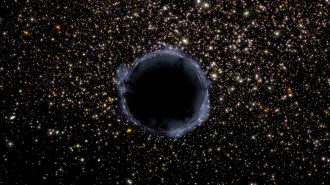 Astronomy
AstronomyA celestial loner might be the first known rogue black hole
The object could be the first isolated stellar-mass black hole identified in the Milky Way — or it might be an unusually heavy neutron star.
-
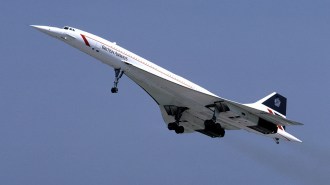 Physics
PhysicsWhy even small sonic booms are more annoying in cities
Quieter sonic booms from next-generation planes could still be annoying in cities thanks to narrow streets and tall buildings, simulations suggest.
-
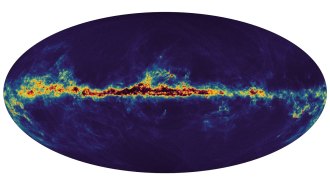 Astronomy
AstronomyNew Gaia data paint the most detailed picture yet of the Milky Way
Gaia’s new data can tell us about galaxies the Milky Way has swallowed, the young solar system and asteroids that could hit Earth.
By Asa Stahl -

-

Predicting the damage caused by extreme storms
Editor in chief Nancy Shute discusses how scientists are figuring out how to predict the effects of extreme hurricanes.
By Nancy Shute -
 Health & Medicine
Health & MedicineNasal vaccines for COVID-19 offer hope and face hurdles
A squirt up the nose could reduce virus transmission, but like shots in the arm, the nasal vaccines have challenges to overcome.
-
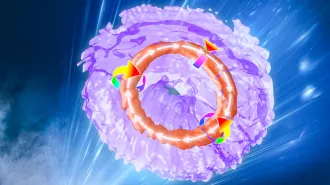 Physics
PhysicsScientists created ‘smoke rings’ of light
A swirling doughnut of light shows that vortex rings aren’t just for fluids anymore.
-
 Quantum Physics
Quantum PhysicsQuantum physics exponentially improves some types of machine learning
It wasn’t entirely clear if quantum computers could improve machine learning in practice, but new experiments and theoretical proofs show that it can.
-
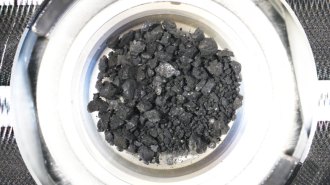 Planetary Science
Planetary ScienceSamples of the asteroid Ryugu are scientists’ purest pieces of the solar system
Samples Hayabusa2 brought to Earth from asteroid Ryugu are far fresher than similar types of meteorites that scientists have found.
By Liz Kruesi -
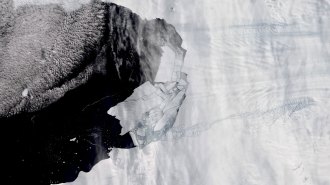 Climate
ClimateAncient penguin bones reveal unprecedented shrinkage in key Antarctic glaciers
Thwaites and Pine Island glaciers are losing ice faster than any other time in the last 5,500 years. That history is written in bones and shells.
By Douglas Fox -
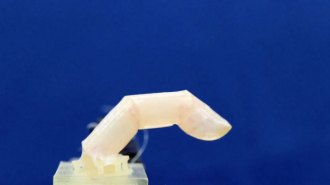 Tech
TechScientists grew living human skin around a robotic finger
In the hopes of one day building super realistic cyborgs, researchers built a robotic finger that wears living human skin.
-
 Science & Society
Science & SocietyHow having health care workers handle nonviolent police calls may impact crime
A new study analyzes a Denver program that sends a mental health professional and EMT to handle trespassing and other minor crime offenses.
By Sujata Gupta